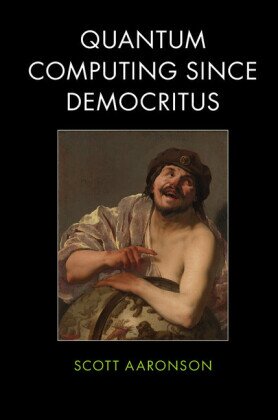Quantum Computing since Democritus - Ausgezeichnet: Choice Outstanding Academic Title 2013
| Verlag | Cambridge University Press |
| Auflage | 2013 |
| Seiten | 398 |
| Format | 15,2 x 22,8 x 2,0 cm |
| Gewicht | 582 g |
| Artikeltyp | Englisches Buch |
| ISBN-10 | 0521199565 |
| EAN | 9780521199568 |
| Bestell-Nr | 52119956EA |
Takes students and researchers on a tour through some of the deepest ideas of maths, computer science and physics.
Written by noted quantum computing theorist Scott Aaronson, this book takes readers on a tour through some of the deepest ideas of maths, computer science and physics. Full of insights, arguments and philosophical perspectives, the book covers an amazing array of topics. Beginning in antiquity with Democritus, it progresses through logic and set theory, computability and complexity theory, quantum computing, cryptography, the information content of quantum states and the interpretation of quantum mechanics. There are also extended discussions about time travel, Newcomb's Paradox, the anthropic principle and the views of Roger Penrose. Aaronson's informal style makes this fascinating book accessible to readers with scientific backgrounds, as well as students and researchers working in physics, computer science, mathematics and philosophy.
Inhaltsverzeichnis:
1. Atoms and the void; 2. Sets; 3. Gödel, Turing, and friends; 4. Minds and machines; 5. Paleocomplexity; 6. P, NP, and friends; 7. Randomness; 8. Crypto; 9. Quantum; 10. Quantum computing; 11. Penrose; 12. Decoherence and hidden variables; 13. Proofs; 14. How big are quantum states?; 15. Skepticism of quantum computing; 16. Learning; 17. Interactive proofs and more; 18. Fun with the Anthropic Principle; 19. Free will; 20. Time travel; 21. Cosmology and complexity; 22. Ask me anything.
Rezension:
'Scott Aaronson has written a beautiful and highly original synthesis of what we know about some of the most fundamental questions in science: what is information? What does it mean to compute? What is the nature of mind and of free will? Highly recommended.' Michael Nielsen, author of Reinventing Discovery

